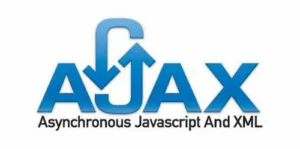I’m trying to make a simple post call in a controller method using an ajax call from a razor view.The ajax call does call the controller method but it does not send the object from that I’m trying to send.I tried multiple solutions from Stackoverflow without success including using Json.stringify() method and using the [HttpPost] attribute in controller method.I also have the name of the object from View the same as the name of the controller method parameter.This is the script where I make the Ajax call:
<script>
$(document).ready(function () {
$('.send-all').on('click', function() {
var data = $('#verticalScroll tr').map(function () {
var $row = $(this);
return {
id: $row.find('.id').text().trim(),
companyName: $row.find('.companyname').text().trim(),
price: $row.find('.price').text().trim(),
quantity: $row.find('.quantity').text().trim(),
}
}).get();
var BID = [];
for (var i = 0; i < data.length; i++) {
if (data[i].id != null && data[i].id != "") {
BID.push(data[i]);
}
}
$.ajax(
{
type: "POST",
url: "/User/UpdateBID",
data: BID,
cache: false,
async: true,
dataType: "json",
success: function (data) {
alert(data);
},
});
});
});
</script>and this is the method from the controller :
public ActionResult UpdateBID(object BID)
{
string c = JsonConvert.SerializeObject(BID);
//Context.UpdateBID(b);
return RedirectToAction("SesionIndividual", TempData["LoginModel"]);
}
The controller method is called,but the object is null.I also made sure the JavaScript object is not null.I also tried to send other objects just to test it,and I have the same result,the parameter in the controller method is null.

 Question posted in
Question posted in 

3
Answers
For anyone interested I realize what the problem was.I was trying to send an JavaScript array of objects to a method which theoretically accepted an array of those objects.Well,apparently this did not work.What I did was to create a new object in C# with a property which had a type of UpdateOrder[],something like that:
I created a similar Term object in Javascript and send it through AJAX in controller method and it worked.So,instead of sending directly an array,I created an object with a property which holds that array.
MVC will try to bind from model properties so there should be a property called BID
The name of the object is irrelevant, as it’s just a variable name. This gets converted to the name
dataanyway – iedata:BID=data=BIDso the “variable name” passed via ajax is “data”. The properties in that variable need to match.The short answer is you your “data” variable needs a property that matches the action parameter name, ie:
The long(er) answer is that the MVC model binder will attempt to match property names with your parameter names. In this case you’ve made it difficult on yourself by using
object BIDinstead of an actual model, so there are no properties to match so it can only match on the parameter itself.If you created a model that matched the data being passed:
and used that in your action
then passing
data: BIDwould work as the properties ofdatawould be matched with the properties ofBIDModel– you could still usedata: { BID: BID }and the MVC model binder would match thedata.BIDproperty to your parameter name directly (and the properties within each would then be mapped).To cover:
the
[HttpPost]attribute does not make it a post method – instead of restricts the http verb to POST. You generally don’t need this. It’s useful where you have two methods with the same name but different overloads and one for the GET with an equivalent POST (where the GET parameter is just anidbut the POST is the full model). It can also be used as additional security.In your case, you are getting inside the action (just with a null parameter) so that part is clearly working fine.